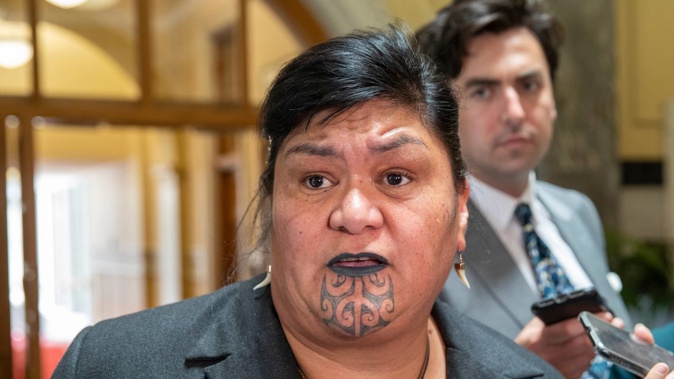
Despite a vehement fight from the Opposition the bill to get rid of a public veto on Māori wards has passed.
Labour used urgency in Parliament to get the law change with just a one-week select committee process.
The rush was to ensure councils planning to set up Māori wards in the 2022 local body elections will not have those wards overturned by a referendum of local electors.
But the law change was fiercely opposed by National which showed its protest to the bill by using up more than 12 hours of House time challenging every single one of the 10 clauses.
The bill was supported by Labour, the Greens and Te Paati Māori and opposed by National and Act.
After the final speech of the third reading, a waiata erupted in the public gallery.
Local Government Minister Nanaia Mahuta authored the bill and said at its third reading it was a chance to rectify an unintended wrong two decades later.
Mahuta was in Parliament in 2002 when the then-Labour government changed the law to allow councils to set up Māori wards.
But the legislation included a provision allowing a tiny minority of voters, just 5 per cent, to force a public referendum and ultimately veto a council's decision.
Since then 24 councils have tried to introduce the Māori wards - with only three successful.
Had she known the 5 per cent barrier was too low "I never would have voted for it", Mahuta told the House.
Increasing Māori representation is essential to ensuring equity in representation and to provide a Māori voice in local decision making, she said.
The law was actually due to be passed on Tuesday night but National forced the urgent debate on the legislation into Wednesday afternoon by filibustering.
That also caused the postponement of numerous public sector bosses and ministers appearing before select committees.
National's tactic was to show its vehement opposition on both the content of the bill - saying it "makes a mockery of our democracy" - and the use of urgency which it called "disgraceful and hypocritical".
The party's local government spokesman Chris Luxon said during the bill's second reading the electoral system should belong to the electors, not the elected.
He said making the law change in urgency didn't live up to Labour's policy manifesto which promised to "ensure that major decisions about local democracy involve full participation of the local population from the outset".
"It was cynical politics, and the consequence is that the broad New Zealand public are none the wiser as to why the change is necessary. And that's a shame, because that will cause more division."
He pointed out that despite the one-week select committee process there were 12,508 submissions on the bill - of which 76 per cent were opposed.
National MP Nick Smith said - at various points in his filibustering - the process "smacks of arrogance" and was even "Trump-like" by taking away the public's vote because Labour didn't like it.
"Electoral law is not your play thing."
Act also opposed the bill while the Green Party and Te Paati Māori supported the bill.
Te Paati Māori co-leader Debbie Ngarewa-Packer said they stood in "absolute celebration" of dismantling racism but wanted the bill to go further and ensure mana whenua were represented on every council.
Green MP Elizabeth Kerekere said the bill ensures Māori have a say on local issues across Aotearoa.
"The numbers of non-Māori who still think that they should retain the system of controlling Māori reinforces for me why this bill is so important."
Shadow leader of the House Chris Bishop said it was "arrogant" of the Government to expect the bill to pass quickly and it was a mistake on their part to draft the legislation in 10 clauses allowing the Opposition to debate every single clause.
Take your Radio, Podcasts and Music with you









